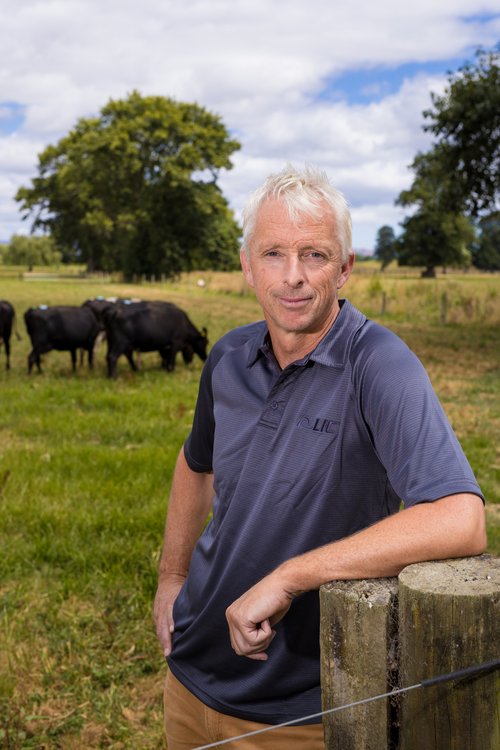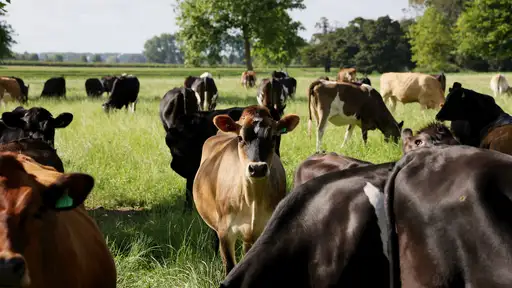Through the Resilient Dairy Programme, LIC has developed the facial eczema (FE) breeding value to enable farmers to breed cows that are more resistant to the disease. It will initially be available in a KiwiCross® bull team featured in the co-op’s 2024 genetics catalogue.
LIC’s Chief Scientist, Richard Spelman, says the breeding value comes after decades of investment and research in understanding the disease.

“With facial eczema predicted to be more prevalent in the future, these advancements will ensure farmers have options to help reduce the disease’s incidence in their herd.
“Through our strong investment in genomics over the years, we are in a great position to do more of this kind of research for our farmers to help them produce the most sustainable and efficient animals.”
Facial eczema impacts thousands of cows a year, particularly between February and May in the North Island and northern regions of the South Island.
It is caused by a pasture-based fungal toxin (sporidesmin) that when ingested, causes liver damage, decreased milk production and in severe cases, death. Eczema-like breakouts and photosensitivity can also occur in a small proportion of affected animals.
Spelman says the breakthrough comes at a critical time for the sector. “The disease is linked to warmer, humid conditions - and February is when farmers start to observe the initial signs of eczema in their herds. In addition to this, we know climate change is increasing the disease's range and prevalence, extending further inland and southward due to rising temperatures.
“The only current method to lessen the impact of facial eczema is preventive zinc dosing early in the year. Once liver damage occurs, there is no cure, only management, which involves removing affected animals from toxic pasture, providing shade, and allowing time for healing.
“Genetics is a long-term solution, so while the breeding value is incredibly exciting for the prevention of facial eczema in New Zealand dairy cows, it’s important that farmers continue their usual on-farm practices to mitigate the disease in their herd.”
Led by LIC, this research has been co-funded through the $25 million Resilient Dairy Programme, a Sustainable Food and Fibre Futures partnership with DairyNZ and the Ministry for Primary Industries. The research aims to enhance the health and wellbeing of the national dairy herd through cutting-edge disease management technologies and genomic advancements.
As part of the Resilient Dairy Programme, LIC has invested over $800,000 to improve animal wellness. Developing a facial eczema breeding value, based on animals that have naturally acquired the disease, is the first outcome of this research.
LIC’s Resilient Dairy Programme Manager Suzanne Young encourages farmers facing facial eczema challenges to consider volunteering their herds for study.
“Our research is far from over. Utilising additional data from working farms will help us to better understand facial eczema and continue to refine our tools to tackle this disease on farm," says Young.
With the Resilient Dairy Programme set to conclude in May 2026, the research team remains focused on achieving further milestones in animal health and wellbeing.
Each year LIC invests around $18 million into research and development, making the co-operative one of the country’s largest private investors in R&D for the primary sector – ensuring New Zealand’s place as a leader in the global pastoral dairy system.
For more information about the Resilient Dairy programme or to volunteer your herd for further facial eczema studies, please email [email protected] or click here.




